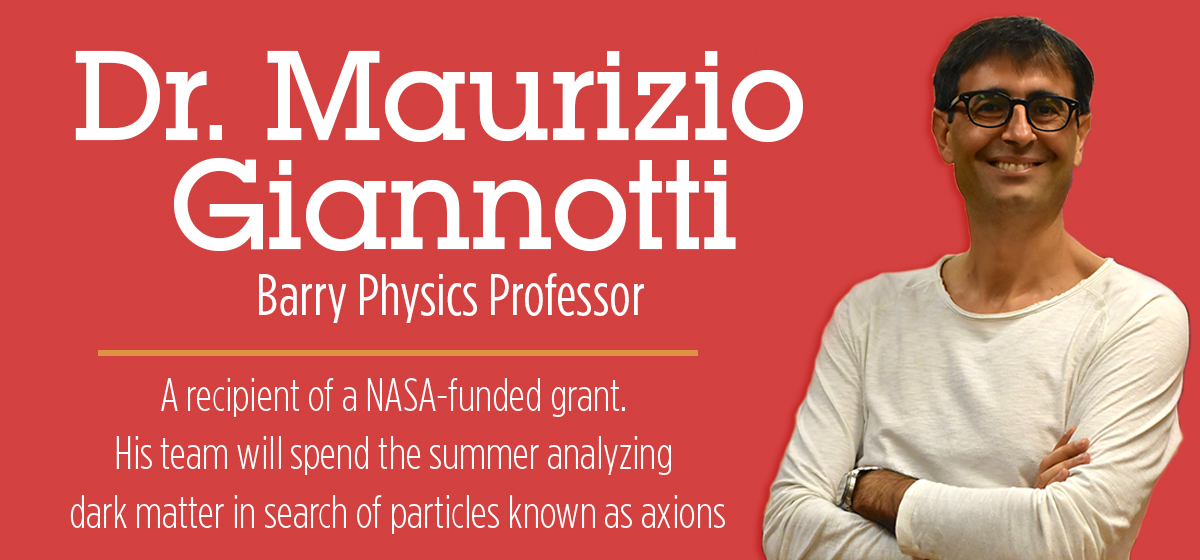MIAMI (Dec. 6, 2019) – Dr. Maurizio Giannotti, a professor of physics in Barry University’s College of Arts and Sciences, has been awarded a NASA-funded grant to analyze a star called Betelgeuse in the Orion Constellation. The grant is in collaboration with MIT Assistant Professor Kerstin Perez and Caltech scientist Brian Grefenstette.
The Betelgeuse star is more than 600 lightyears away, has a core temperature 10 times hotter than the sun, and is often the ninth brightest in the night sky. The grant will offer Giannotti special access to data collected for the first time by the Nuclear Spectroscopic Telescope Array (NuSTAR) and to analyze it before the information becomes public. The data could reveal unknown aspects of axion physics.
Research will likely begin before next summer and last a few months, followed by additional time for physical interpretation of the results. The grant, in excess $67,000, covers research time and part of the summer salaries and travel for Giannotti and Perez.
“It is truly a great opportunity to be able for the first time to collect and analyze hard X-ray data from Betelgeuse. One of the most appealing candidates to explain the behavior of dark matter is the axion, a theoretical subatomic particle that appears in many theories of dark matter. If axions exist, they could be produced in the cores of stars like Betelgeuse,” Giannotti said. “My colleagues and I are very pleased to receive this grant, which will allow use of NASA’s NuSTAR to collect data from Betelgeuse, which we will analyze for evidence of the axion. We are excited and hopeful that the results from our analysis will help further understanding of the physics of axions and, more generally, of dark matter.”
Giannotti works in dark matter, looking for hypothetical particles called axions that may represent the totality or a large portion of the dark matter component of the universe.
Giannotti is looking for ways to better understand the physical world through this fundamental experiment. This exciting new information will further fuel interest of his students and members of the Astro Math and Physics (AMP) Club, which Giannotti co-advises. He plans to offer talks on the subject in the future in order to educate and engage the community at large.
About Barry University
Founded in 1940 by the Adrian Dominican Sisters, Barry University offers more than 100 bachelor’s, master’s and doctoral degree programs. Based in Miami, Fla., the University is composed of two colleges and six schools in the areas of Arts and Sciences, Business, Education, Law, Nursing and Health Sciences, Podiatry, Professional and Career Education (PACE), and Social Work. The University enrolls approximately 7,500 students from nearly all 50 states and 80 countries and has more than 65,000 alumni worldwide.
*The material contained in this document is based upon work supported by a National Aeronautics and Space Administration (NASA) grant or cooperative agreement. Any opinions, findings, conclusions or recommendations expressed in this material are those of the author and do not necessarily reflect the views of NASA

